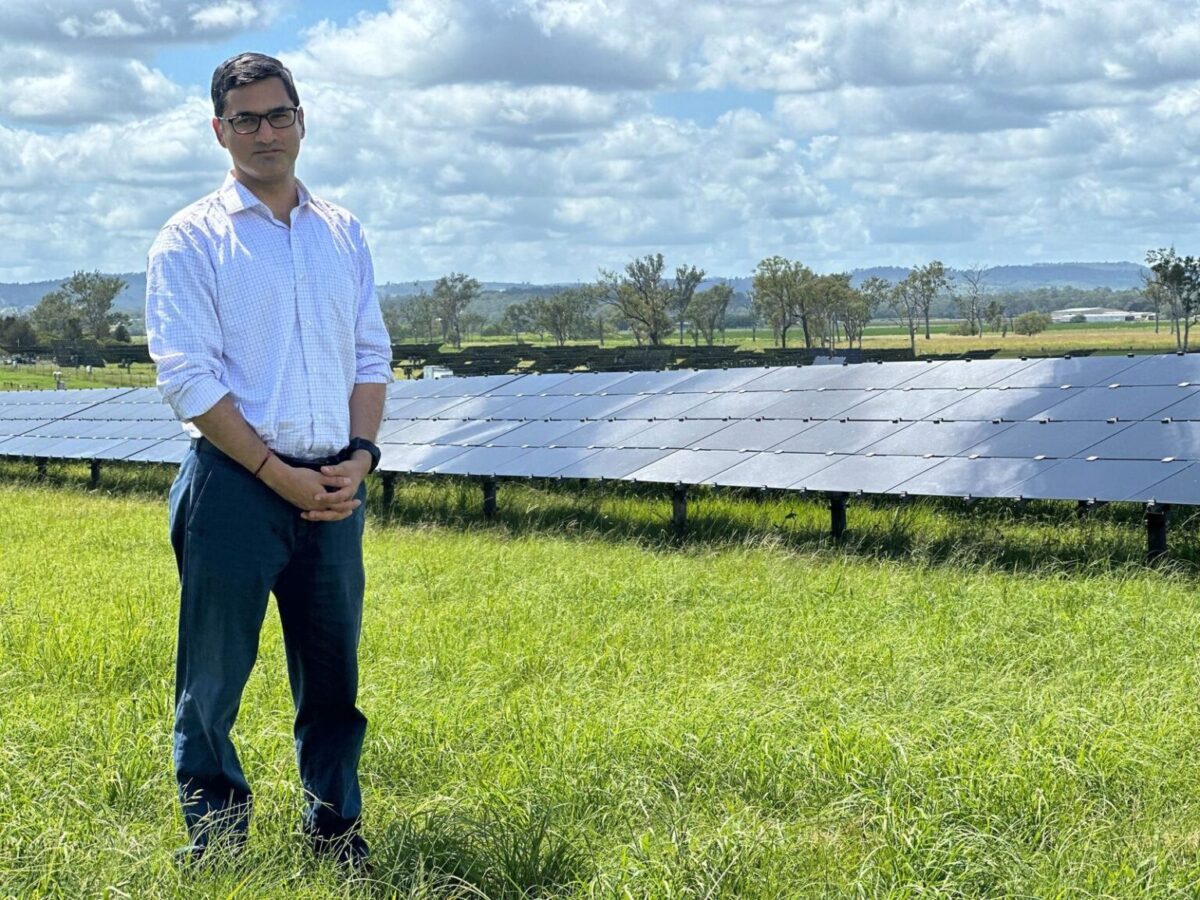A tech start-up from The University of Queensland (UQ) has developed a system that utilizes machine-learning algorithms to analyze existing data and detect, locate and identify faulty and underperforming solar panels in real time, and recommend targeted maintenance.
The Solaris AI system has been developed to detect, locate and identify any faults and underperformance issues in large-scale solar farms. It also tries to see if there are any trends or patterns that indicate the likelihood of occurrence of faults in the future.
Associate Professor Rahul Sharma from UQ’s School of Electrical Engineering and Computer Science said the technology is able to monitor data that is already available at the solar farms, including the current and voltage data, and locate potential performance issues down to individual array and panel string levels.
“Using the data, Solaris AI’s algorithms are meant to sequentially extract information about the degradation across the farm, soiling levels across the farm or wiring faults across the farm and that information is then translated into actionable items for the on-site technicians, that is where the maintenance work needs to be prioritized,” he said. “Solaris AI is an all-in-one solar farm operation and maintenance system.”
Sharma said the technology, which requires no specific hardware to be installed for it to work, could significantly reduce the amount of generation lost to underperformance, potentially saving solar farm operators an estimated $200 million annually.
“Underperformance in Australian solar farms cost the industry around $400 million a year,” he said. “That’s a huge amount. We’re aiming for Solaris AI to reduce those losses by half, and potentially deliver an uplift in revenue of up to 8%.”
UQ said the Solaris AI system was tested in a pilot study on a small-scale solar farm before being trialed on a commercial solar farm.
Discussions are now underway to roll out the technology at Edify Energy and Gentari Solar Australia’s Hamilton solar farm at Collinsville in north Queensland and Genex Power’s Kidston solar farm in the state’s northwest.
pv magazine print edition
Edify Energy Chief Executive Officer and founder John Cole said the technology offers a potential solution to the challenge of detecting faulty or underperforming solar panels at large-scale solar farms.
“The key to maintaining grid reliability and achieving success as a network operator is effective and efficient asset management,” he said. “This technology has the potential to drive solutions to the world’s energy crisis.”
Solaris AI was founded by UQ’s commercialization company UniQuest, spearheaded by investment from Uniseed as well as the UniQuest Investment Fund. The project also benefitted from a partnership with German electronics and connection technology company Wiedmueller, which supported the creation of early prototypes.
This content is protected by copyright and may not be reused. If you want to cooperate with us and would like to reuse some of our content, please contact: editors@pv-magazine.com.




1 comment
By submitting this form you agree to pv magazine using your data for the purposes of publishing your comment.
Your personal data will only be disclosed or otherwise transmitted to third parties for the purposes of spam filtering or if this is necessary for technical maintenance of the website. Any other transfer to third parties will not take place unless this is justified on the basis of applicable data protection regulations or if pv magazine is legally obliged to do so.
You may revoke this consent at any time with effect for the future, in which case your personal data will be deleted immediately. Otherwise, your data will be deleted if pv magazine has processed your request or the purpose of data storage is fulfilled.
Further information on data privacy can be found in our Data Protection Policy.